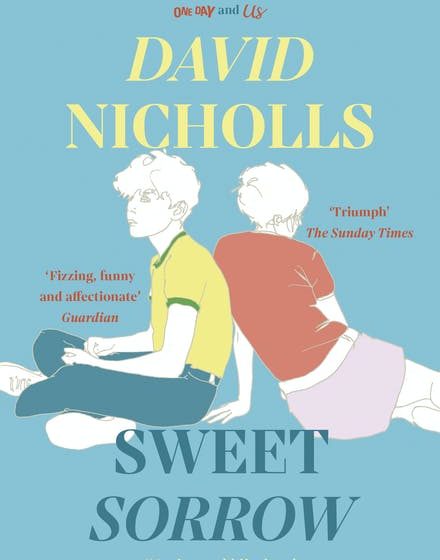As we wade through this confusing world, knee-deep in cheap entertainment, reading has taken on a more arduous tone.
Brushing dust off the bookshelf seems something we should do, rather than wish to. However, a book like Sweet Sorrow can bridge the gap between entertainment and challenging art – that divide which so often leaves us scrolling endlessly through Netflix.
Told in first-person, Charlie Lewis recalls the summer of 1997 – a time of first love. But this is not simply a love story. Caught in life’s current, his is a realistic account of a summer spent worrying about exam results, a depressed father, a broken family, and personal identity – all framed and influenced by his inexorable love. At times the novel captures what we turn love into, a symphony of meaning in small glances and shy words, while at others Charlie impedes with admittance of his own fantastic portrayal, philosophising on the past and how we refabricate it into personal mythology.
Carrying all of this is fastidious and elegant prose. The novel reads easily, begging for a fast read fuelled by the need to understand the story of this love, that same desire which burns within the protagonist. Juxtaposed against Shakespeare’s Romeo and Juliet, which is rehearsed and performed by the community theatre Charlie reluctantly joins for his newfound love, the book dabbles in the meta-narrative awareness that has become vogue in recent years. Reflecting on Shakespeare’s star-crossed lovers, within a retelling of his own love story, the narrator captures both the strength of young love, and what time allows nostalgia to reform it into.
Sweet Sorrow is a fantastic book because it eschews the traditions of romance in narrative without falling prey to cynicism. We are shown how love changes us, seeps into every corner of our lives, and is ultimately meaningful long after it ends.




